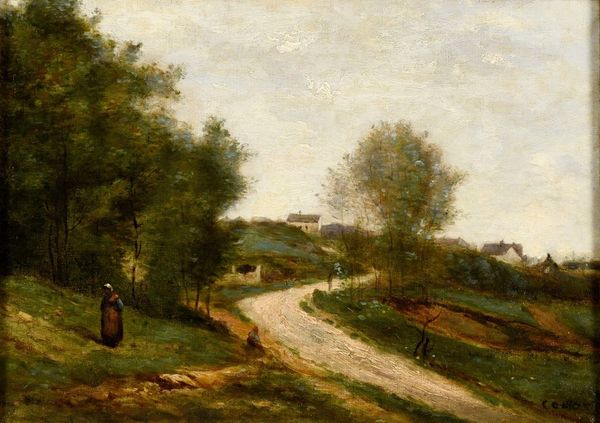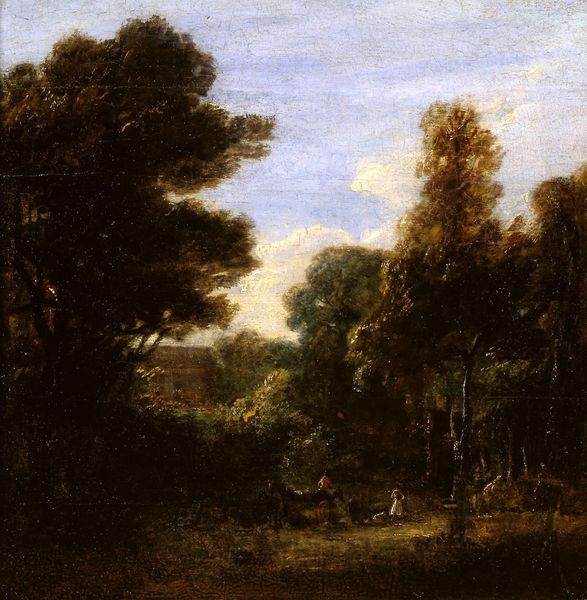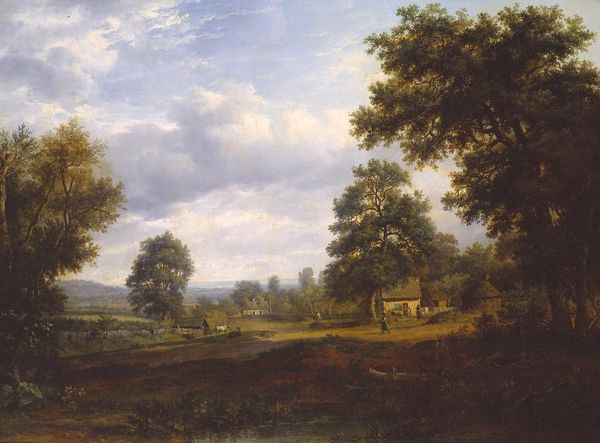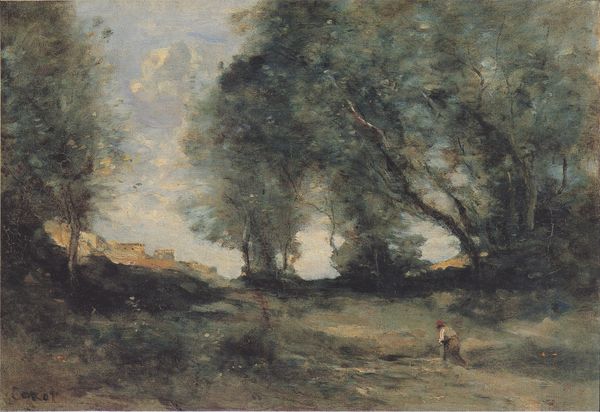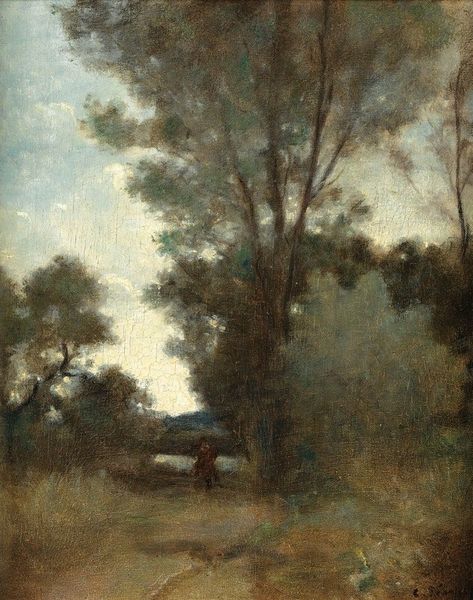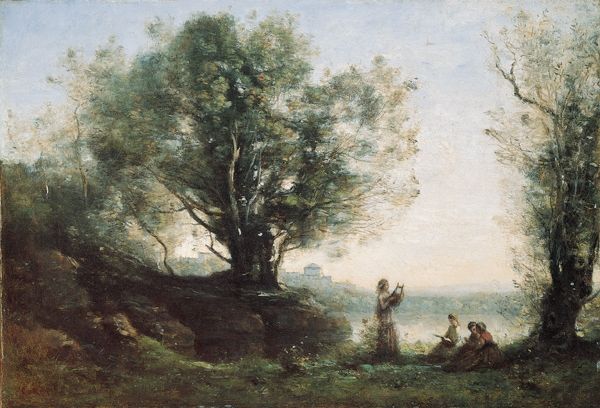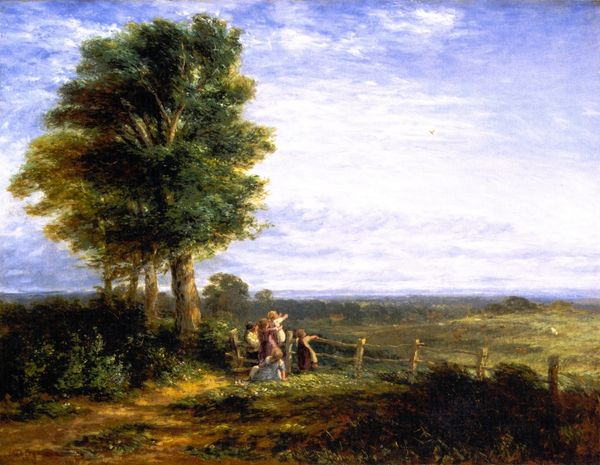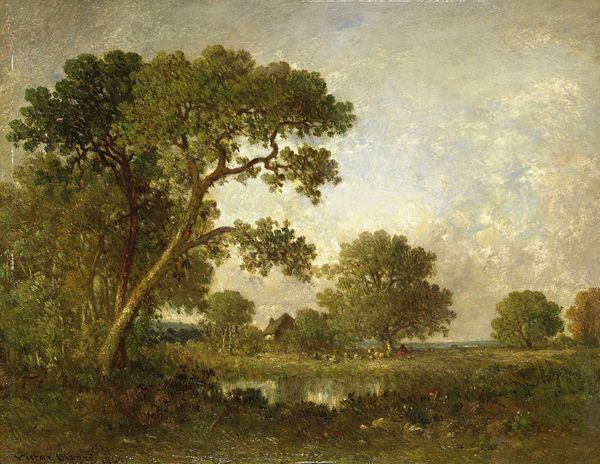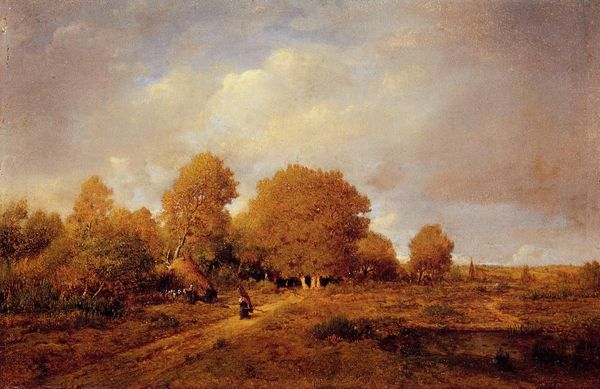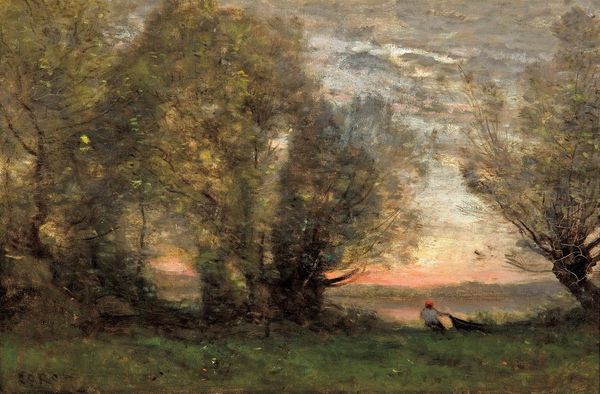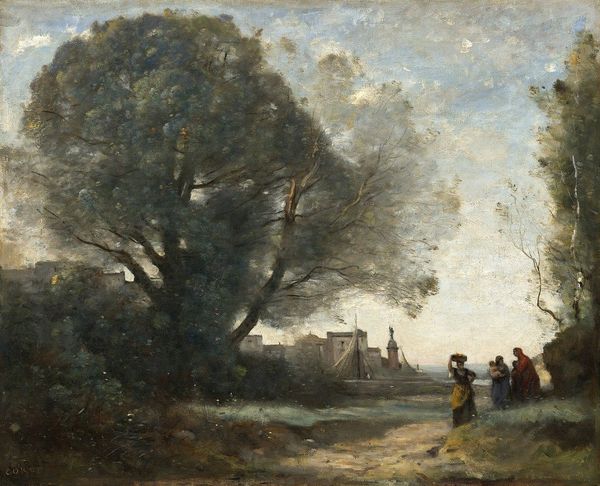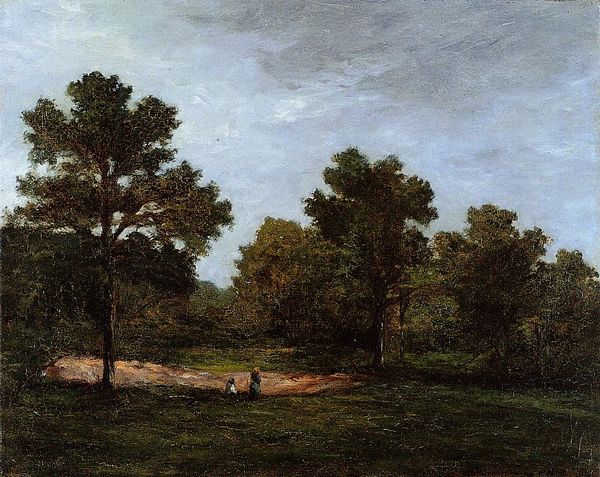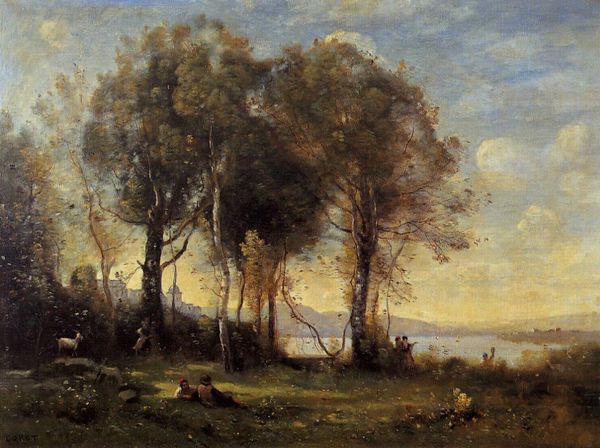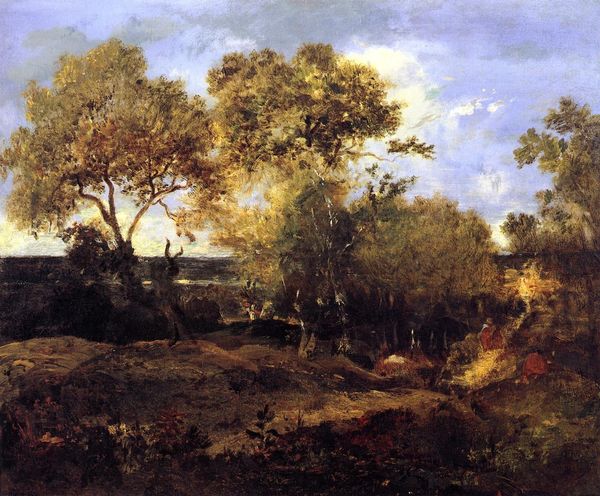
plein-air, oil-paint
#
plein-air
#
oil-paint
#
landscape
#
oil painting
#
romanticism
#
realism
Copyright: Public Domain: Artvee
John Constable's "The Lane from East Bergholt to Flatford" captures a landscape in which the material realities of early 19th-century England intersect with personal sentiment. Constable, son of a wealthy corn merchant, devoted himself to painting the rural scenes of his childhood, at a time when the English countryside was undergoing radical transformations. Here, the lane represents more than just a path; it embodies the transitions of life and the changing face of England. The figures resting by the roadside evoke a sense of timelessness, yet they also hint at the human impact on this landscape. Constable himself expressed a deep emotional connection to the area, stating "I should paint my own places best." This artwork offers a nostalgic vision, even as industrialization began to encroach upon the agrarian way of life. It serves as both a celebration and an elegy. The lane, bathed in soft light, invites us to reflect on the relationship between place, memory, and identity. It challenges viewers to consider the stories embedded within landscapes.
Comments
No comments
Be the first to comment and join the conversation on the ultimate creative platform.
